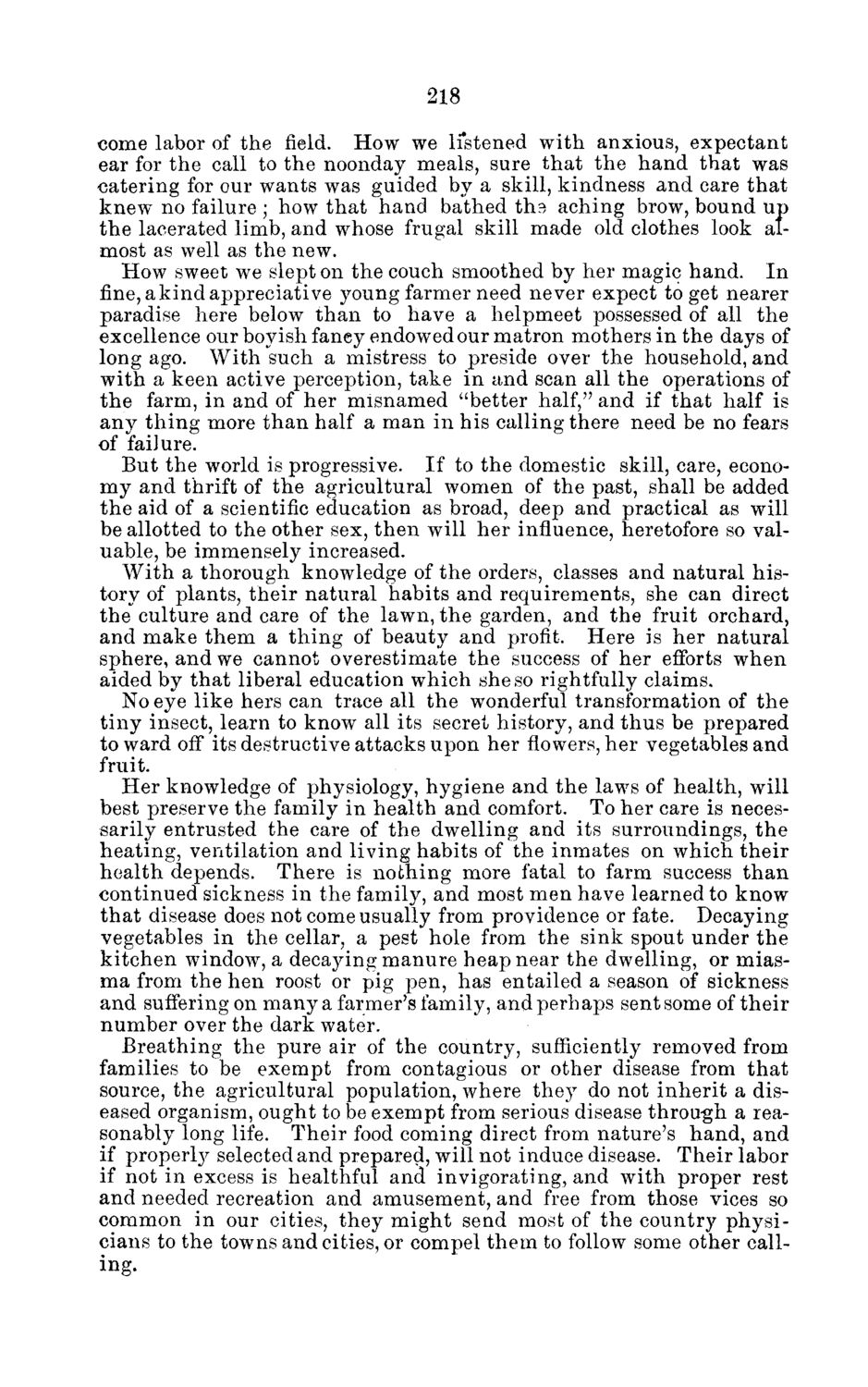| |
| |
Caption: Board of Trustees Minutes - 1876
This is a reduced-resolution page image for fast online browsing.

EXTRACTED TEXT FROM PAGE:
218 come labor of the field. How we listened with anxious, expectant ear for the call to the noonday meals, sure that the hand that was catering for our wants was guided by a skill, kindness and care that knew no failure ; how that hand bathed tha aching brow, bound up the lacerated limb, and whose frugal skill made old clothes look almost as well as the new. How sweet we slept on the couch smoothed by her magic hand. In fine, a kind appreciative young farmer need never expect to get nearer paradise here below than to have a helpmeet possessed of all the excellence our boyish fancy endowed our matron mothers in the days of long ago. With such a mistress to preside over the household, and with a keen active perception, take in and scan all the operations of the farm, in and of her misnamed "better half," and if that half is any thing more than half a man in his calling there need be no fears of failure. But the world is progressive. If to the domestic skill, care, economy and thrift of the agricultural women of the past, shall be added the aid of a scientific education as broad, deep and practical as will be allotted to the other sex, then will her influence, heretofore so valuable, be immensely increased. With a thorough knowledge of the orders, classes and natural history of plants, their natural habits and requirements, she can direct the culture and care of the lawn, the garden, and the fruit orchard, and make them a thing of beauty and profit. Here is her natural sphere, and we cannot overestimate the success of her efforts when aided by that liberal education which she so rightfully claims. No eye like hers can trace all the wonderful transformation of the tiny insect, learn to know all its secret history, and thus be prepared to ward off its destructive attacks upon her flowers, her vegetables and fruit. Her knowledge of physiology, hygiene and the laws of health, will best preserve the family in health and comfort. To her care is necessarily entrusted the care of the dwelling and its surroundings, the heating, ventilation and living habits of the inmates on which their health depends. There is nothing more fatal to farm success than continued sickness in the family, and most men have learned to know that disease does not come usually from providence or fate. Decaying vegetables in the cellar, a pest hole from the sink spout under the kitchen window, a decaying manure heap near the dwelling, or miasma from the hen roost or pig pen, has entailed a season of sickness and suffering on many a farmer's family, and perhaps sent some of their number over the dark water. Breathing the pure air of the country, sufficiently removed from families to be exempt from contagious or other disease from that source, the agricultural population, where they do not inherit a diseased organism, ought to be exempt from serious disease throu-gh a reasonably long life. Their food coming direct from nature's hand, and if properly selected and prepared, will not induce disease. Their labor if not in excess is healthful and invigorating, and with proper rest and needed recreation and amusement, and free from those vices so common in our cities, they might send most of the country physicians to the towns and cities, or compel them to follow some other calling.
| |